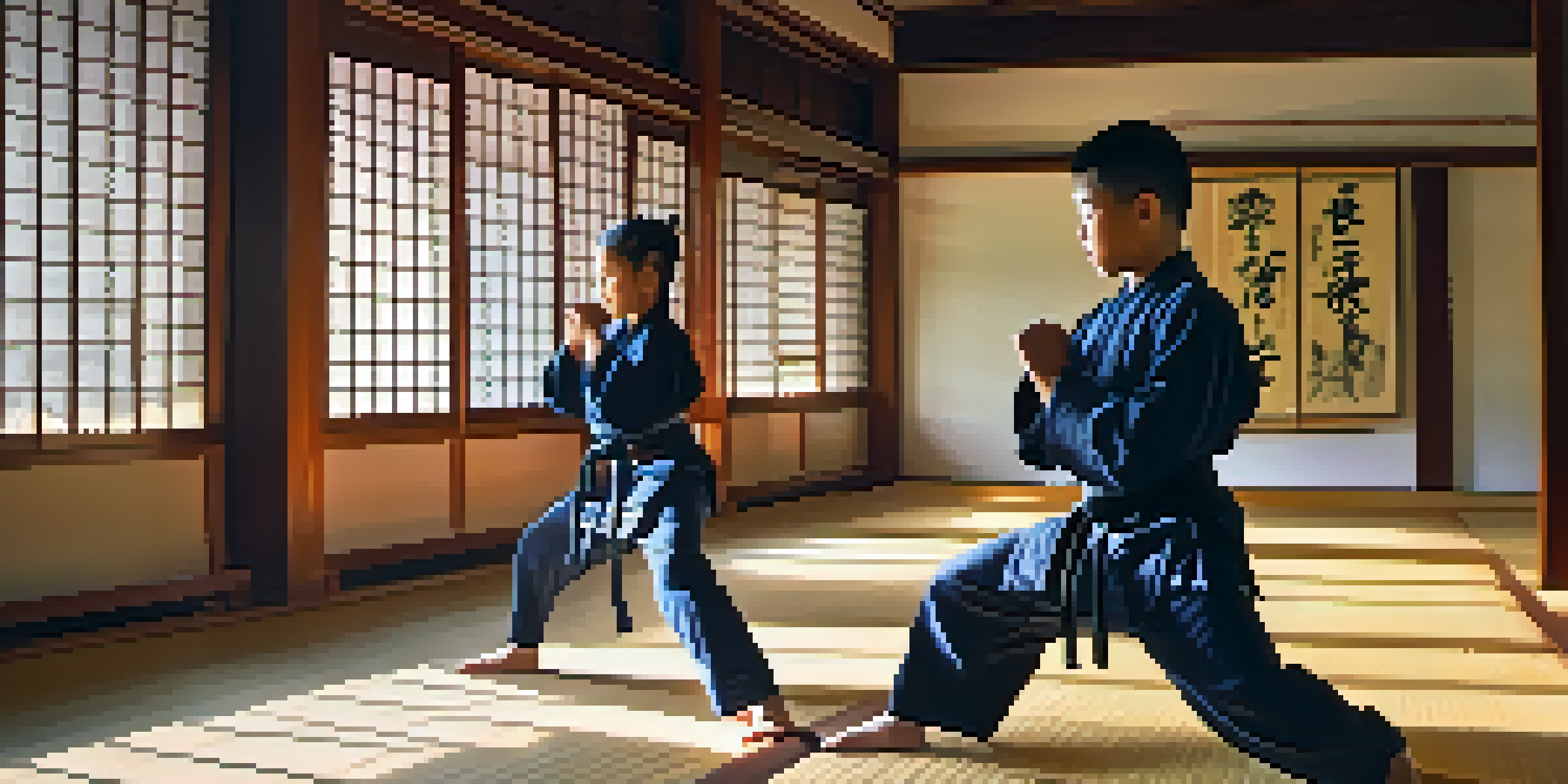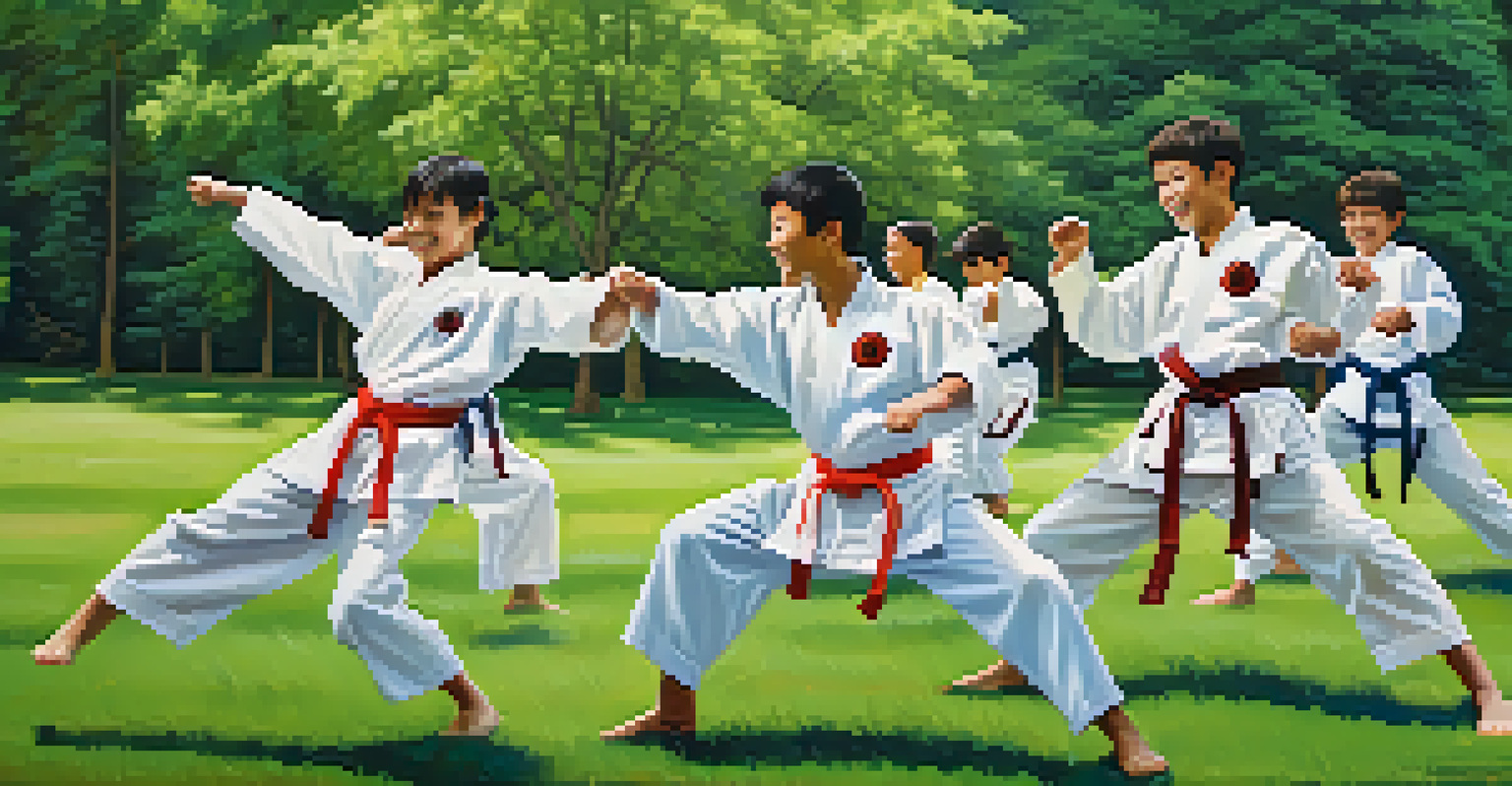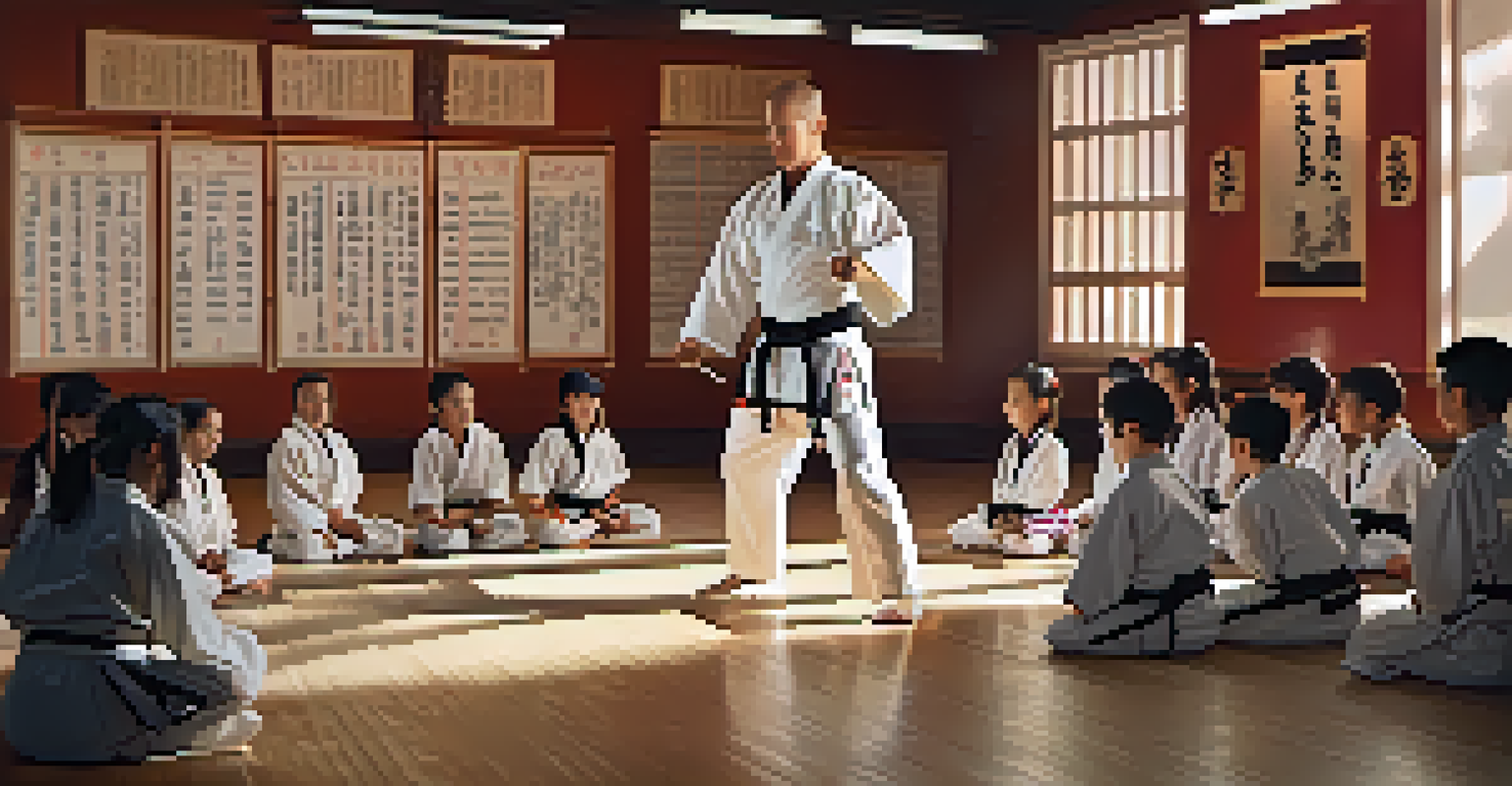The Influence of Martial Arts Instructors on Youth Development

Understanding the Role of Martial Arts Instructors
Martial arts instructors play a crucial role in shaping young minds. They are not just teachers of techniques, but also mentors who instill values like discipline, respect, and perseverance. This multifaceted role contributes significantly to the holistic development of youth, making martial arts a unique avenue for personal growth.
The ultimate aim of martial arts is not having to use them.
Instructors serve as role models, demonstrating how to handle success and failure gracefully. They create an environment that encourages students to push their limits while emphasizing the importance of humility and hard work. This balance helps youth develop a strong character that they can carry into other areas of their lives.
The influence of these instructors extends beyond the dojo. Many students find themselves applying the lessons learned in martial arts to their schoolwork, friendships, and even family dynamics. This integration of martial arts principles into daily life underscores the lasting impact instructors have on their students.
Building Confidence Through Martial Arts Training
One of the most notable benefits of martial arts training is the boost in self-confidence it provides. As students learn and master new techniques, they gain a sense of achievement that can translate into other aspects of their lives. This newfound confidence often encourages them to take on challenges they might have previously avoided.

Instructors play a pivotal role in fostering this confidence by providing constructive feedback and celebrating small victories. They create a safe space where students can make mistakes and learn from them, which is essential for personal growth. This supportive environment helps students realize that failure is not the end, but a stepping stone to success.
Martial Arts Build Character
Instructors instill values like discipline, respect, and perseverance, shaping students into well-rounded individuals.
As students progress in their training, they often discover strengths they didn't know they had. This self-discovery is empowering and reinforces the belief that they can overcome obstacles both on and off the mat. Instructors guide them through this journey, helping them to see themselves as capable and resilient individuals.
Promoting Discipline and Focus in Young Practitioners
Discipline is a core tenet of martial arts, and instructors emphasize its importance in every class. Students learn that practice and consistency are key to mastering techniques, which fosters a strong work ethic. This lesson in discipline often carries over into their academic pursuits and personal lives.
Success is no accident. It is hard work, perseverance, learning, studying, sacrifice, and most of all, love of what you are doing or learning to do.
Instructors implement structured training regimes that require students to focus on their goals. By setting small, achievable objectives, instructors help students develop a sense of purpose and direction. This focus not only enhances their martial arts skills but also teaches them the importance of setting and reaching goals in other areas.
The ability to concentrate and stay disciplined is a valuable life skill. As youth learn to manage their time and energy effectively, they become more adept at juggling schoolwork, extracurricular activities, and social obligations. This foundation of discipline lays the groundwork for future successes.
Fostering Respect and Empathy in Students
Respect is a fundamental principle taught in martial arts, and instructors make it a cornerstone of their teaching philosophy. Students learn to respect their instructors, peers, and opponents, which cultivates a sense of community within the dojo. This culture of respect often spills over into their interactions outside of martial arts.
Instructors emphasize the importance of empathy, encouraging students to understand and appreciate different perspectives. This practice not only strengthens relationships among students but also prepares them to navigate the complexities of social interactions in their daily lives. It nurtures an inclusive mindset that values diversity.
Confidence Through Achievement
As students master techniques, they gain self-confidence that translates into other areas of their lives.
As students learn to respect others, they also develop greater self-respect. This mutual respect fosters a positive environment where everyone feels valued and supported. Instructors play a vital role in reinforcing these lessons, helping students build strong, respectful relationships that can last a lifetime.
Encouraging Teamwork and Social Skills
Martial arts training is often seen as an individual pursuit, but it also promotes teamwork. Instructors frequently incorporate partner drills and group exercises that require collaboration among students. These activities foster communication skills and teach the importance of working together towards a common goal.
Through teamwork, students learn valuable life skills such as negotiation, compromise, and conflict resolution. Instructors guide them in understanding how to appreciate each other's strengths and weaknesses, which is essential in building effective relationships. This collaborative spirit extends beyond martial arts and into all facets of their lives.
As students engage in team activities, they also develop a sense of camaraderie and belonging. This social connection can be especially beneficial for youth who may struggle with feelings of isolation. Instructors create an environment that celebrates teamwork, helping students forge friendships that enhance their overall development.
Instilling a Sense of Responsibility and Leadership
Martial arts training encourages students to take responsibility for their actions and decisions. Instructors teach that every choice has consequences, fostering a sense of accountability that is crucial for personal growth. This lesson helps youth recognize the importance of their decisions both on and off the mat.
As students progress in their training, they may take on leadership roles within their classes. Instructors often encourage advanced students to mentor beginners, which not only reinforces their own skills but also instills a sense of responsibility. This leadership experience is invaluable in developing confidence and social awareness.
Teamwork Enhances Social Skills
Partner drills and group exercises foster collaboration, teaching valuable life skills like negotiation and conflict resolution.
Instructors guide students in understanding that true leadership is about serving others and uplifting those around them. This lesson in responsibility and leadership equips youth with the tools they need to positively influence their communities, preparing them for future roles as responsible adults.
The Long-Term Impact of Martial Arts on Youth Development
The influence of martial arts instructors extends far beyond the training hall. The values and skills learned through martial arts often shape students into well-rounded individuals. As they grow older, the lessons of discipline, respect, and resilience continue to guide their choices and interactions.
Many students carry the principles of martial arts into adulthood, influencing their professional and personal relationships. The confidence and leadership skills developed through training often translate into successful careers and fulfilling lives. Instructors play a pivotal role in laying this foundation for future success.

Ultimately, the impact of martial arts instructors on youth development is profound and lasting. They not only teach physical skills but also mold character and instill values that resonate throughout a student's life. This enduring influence is what makes martial arts a powerful tool for youth development.